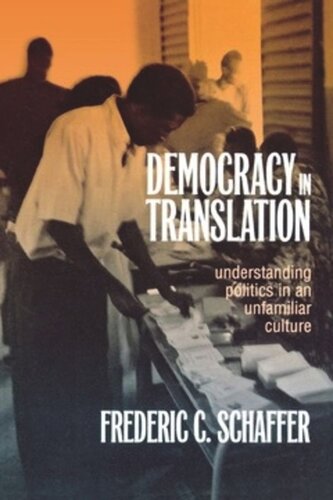

Most ebook files are in PDF format, so you can easily read them using various software such as Foxit Reader or directly on the Google Chrome browser.
Some ebook files are released by publishers in other formats such as .awz, .mobi, .epub, .fb2, etc. You may need to install specific software to read these formats on mobile/PC, such as Calibre.
Please read the tutorial at this link: https://ebookbell.com/faq
We offer FREE conversion to the popular formats you request; however, this may take some time. Therefore, right after payment, please email us, and we will try to provide the service as quickly as possible.
For some exceptional file formats or broken links (if any), please refrain from opening any disputes. Instead, email us first, and we will try to assist within a maximum of 6 hours.
EbookBell Team

4.4
22 reviewsFrederic C. Schaffer challenges the assumption often made by American scholars that democracy has been achieved in foreign countries when criteria such as free elections are met. Elections, he argues, often have cultural underpinnings that are invisible to outsiders. To examine grassroots understandings of democratic institutions and political concepts, Schaffer conducted fieldwork in Senegal, a mostly Islamic and agrarian country with a long history of electoral politics. Schaffer discovered that ideas of "demokaraasi" held by Wolof-speakers often reflect concerns about collective security. Many Senegalese see voting as less a matter of choosing leaders than of reinforcing community ties that may be called upon in times of crisis.By looking carefully at language, Schaffer demonstrates that institutional arrangements do not necessarily carry the same meaning in different cultural contexts. Democracy in Translation asks how social scientists should investigate the functioning of democratic institutions in cultures dissimilar from their own, and raises larger issues about the nature of democracy, the universality of democratic ideals, and the practice of cross-cultural research.